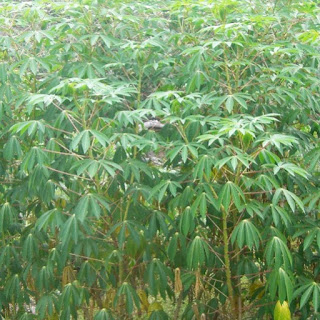
Unfortunately, half the plants mentioned don’t grow here – but that doesn’t make Jackie’s insight any less worthwhile:
“Year after year we start seeds, till the ground, plant, weed, harvest,
then tear it all out at the end of the season. It’s a lot of work, no
doubt. But there are some plants you can plant once that will produce a
lifetime of food after they are established. Old-timers knew the value
of these plants and added them to their new homesteads. Pioneers
carefully wrapped and tended baby fruit trees, grapevines, rhubarb, and
asparagus roots in their covered wagons. Maybe it’s time to lighten your
annual workload by adding some of these hardworking plants to your
garden. If you do, you’ll reap the rewards for many years.” (read more)
For Florida, I’d recommend Katuk instead of asparagus, then also plug cassava, sweet potatoes, Dioscorea species, moringa and other plants like that.


2 comments
David, where can I get my hands on some cassava, non-toxic air potato, or moringa? I live in Lakeland, but no one around here seems to have any idea that those plants even exist. I'm planting as many perennial edible plants as I can get my hands on, and those two are the next on my list! (I have puh-lenty of the toxic air potatoes laying around. At least I assume they're the toxic variety.)
I have a cousin in Frostproof who's growing moringa and cassava… that's where I got my original cuttings. Drop me an e-mail off the "contact" link and I'll see if I can put you in touch.
I'm hoping to start a nursery before too long – if I do that, I'll be carrying all kinds of stuff no one else has. It's ridiculous how hard it is to find some of these plants.
As for the air potatoes – there's an easy way to tell which version you have. If the airborne bulbils are light colored and generally round balls that look kind of like asteroids – it's the inedible type. If they're dark brown to black misshapen things that look like weird organs… they're probably the edible type. Dioscorea bulbifera is often toxic… and Dioscorea alata is not.
You may have trouble finding any for sale, though, because they're listed as an invasive in Florida.
Comments are closed.